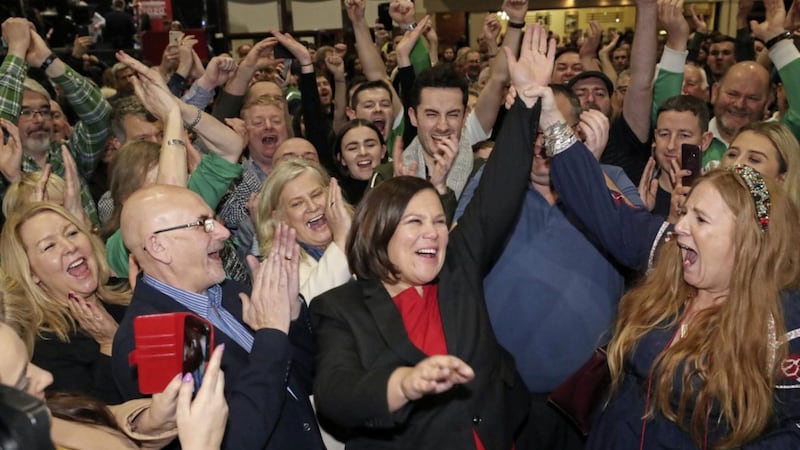THE words of Sam Cooke from the days of the civil rights movement in the US came irresistibly to mind as votes in the southern general election were being counted.
We are told that A Change is Gonna Come (check it out on YouTube) was inspired in part by an event where the African-American singer and his companions were turned away from a whites-only motel in Louisiana.
Nevertheless that song from 1964 is optimistic in tone and this would eventually be vindicated when Barack Obama became President of the United States.
You couldn’t equate the non-violent movement led by Martin Luther King with Sinn Féin, given the latter’s history as political counterpart of the Provisional IRA. But the troubles which spawned the Provos had their origin in a struggle to achieve equality for northern Catholics who were treated as second-class citizens.
Sinn Féin have now become part of the devolved administration in the north but key party leaders in the south have been consistently rejecting them as potential partners in government, not on religious but political grounds.
It now looks as if “a change is gonna come” – in fact it’s already here.
Read More:
- Sinn Féin surge smashes Republic's political status quo
- Big hitters lose out as Sinn Féin make gains
- Housing and health were standout issues for voters
A high proportion of voters in Saturday’s general election backed Sinn Féin and, in a republic, the people are meant to be sovereign.
That isn’t to ignore issues such as the funding of tax and social welfare measures proposed by Mary Lou’s party as well as questions about its internal governance, not to mention its response to controversies such as the one arising from the brutal and shocking murder of young Paul Quinn by persons unknown in 2007.
For many decades, the south had a “two-and-a-half party” system whereby the political scene was dominated by the big beasts of Fianna Fáil and Fine Gael, who had their roots in the Civil War of 1922-23, with Labour making up the numbers for a government from time to time.
Analysis (Premium):
- John Manley: Sinn Féin storms to fore but will it be in government?
- Brian Feeney: Sinn Féin storm blows away old party system
- Allison Morris: A new Ireland with changing priorities emerges
As of now, we are facing a three-party scenario, where Sinn Féin are on a broadly similar level of support to FF and FG.
At time of writing, the precise number of seats the various competitors will achieve is unclear but Sinn Féin are doing very well and the party would have an even larger contingent in the new Dáil if it had run more candidates.
Indeed, at the start of the current general election campaign, few observers anticipated that “the Shinners” would be centre-stage by the end.
The challenge for Mary Lou and her friends is to keep the momentum going. Logic suggests that Fianna Fáil and Fine Gael will be reluctant to face another general election in the near future.
The best way to prevent that would be another confidence-and-supply arrangement but, this time, FG would be supporting FF from the opposition benches instead of the other way around.
The possibility of setting up a formal “grand coalition” between these two parties could also keep the incoming Dáil in operation for a considerable period but would cause internal problems, especially in Fianna Fáil, not least because of the pending centenary of the Civil War where terrible deeds took place that involved their forebears.
One of the conclusions to be drawn from the current political drama is that Sinn Féin has a serious prospect of becoming the main party of government, presumably not this time but after the next general election.
The key priority, if that comes about, will be to live up to its campaign rhetoric because the electorate makes its final judgment on performance and not words. Sentiment is no longer a central feature of the Irish political scene.








